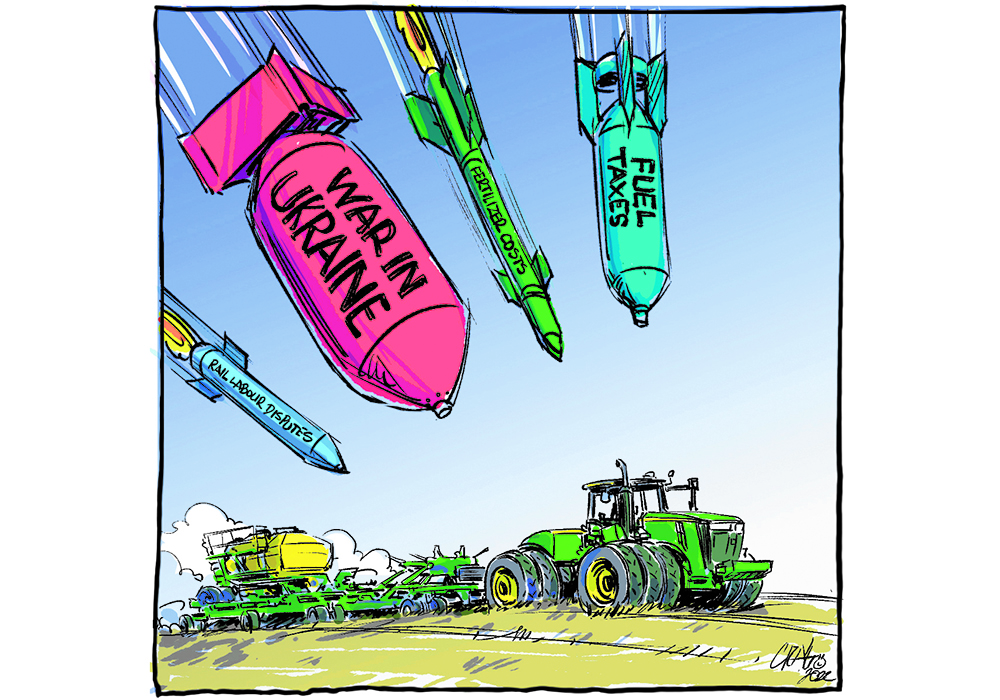Editor’s note: To meet printing deadlines, this editorial was written prior to an arbitration agreement being reached between CP Rail and its unionized employees.
The labour dispute at Canadian Pacific Railway is generating tremors in an industry rife with deep fissures.
Mediation efforts continued at time of this writing, but since the work stoppage began earlier this week, multiple agriculture organizations, commissions and other factions have expressed dismay and urged the federal government to employ all options to get CP trains rolling again.
Read Also

Budget seen as fairly solid, but worrying cracks appear
The reaction from the agriculture industry to prime minister Mark Carney’s first budget handed down November 4th has been largely positive.
Among them are the Canadian Federation of Agriculture, Canadian Canola Growers Association, Canadian Cattlemen’s Association, National Cattle Feeders Association, Canadian Fertilizer Institute, Keystone Agricultural Producers, the Saskatchewan government, some members of the Saskatchewan Association of Rural Municipalities, Sask Wheat, the Alberta Wheat and Barley Commissions, Grain Farmers of Ontario and numerous other corporations, businesses and individuals.
Will the government take heed?
Make no mistake about it, the Teamsters union and CP are both using as leverage agricultural commodities, energy and the current global demand for both. Neither party wants a single contract imposed upon them.
But given the pressures now crushing Canadian spring crop prospects, a speedy resolution to this dispute is urgently needed.
This is a year unlike any other. Yet the coming crop, so anticipated and prized by so many, faces accumulating obstacles on its road to success.
The current supply chain issues began last summer when grain and oilseed inventories diminished and the world emerged from COVID-19 slowdowns and lockdowns.
Inflation fear became the mantra of news and business networks, while the global consumer consumption slump and resulting paltry profits of the previous 18 months were ignored.
Strong commodity prices, enhanced by money in the equities sector and by those looking for counter-cyclical investment alternatives, stimulated desires to increase production just when drought hit key areas of North and South America.
Canadian farmers saw rising demand for fertilizer around the globe but COVID-slowed supply chains didn’t stretch and prices jumped dramatically. China, previously a crop nutrient exporter, made early decisions to retain its supplies for the coming seasons.
From ports to ships, and now to rails, the logistics systems that would normally convey the ingredients required for Canadian agriculture sustainability have been grinding slower under the weight of demand.
War in Ukraine has also placed a heavy finger on the scales that balance food and fertilizer sufficiency and shortage.
Crop production goals generated by high crop prices will require fertilizer and the latest technology to precisely place seed and nutrients as rapidly as the laws of physics will allow. But even the computer chips, steel and rubber needed to meet those goals are in short supply.
The labour disruption happened just when one might ask, “what else could go wrong for this crop?”
Saskatchewan Premier Scott Moe has said the federal government should put a stop to the labour dispute and not just for this season, but forever, by designating railway service as essential.
That would require Parliament to intervene in the nation’s labour relations in a way that would affect both labour and business interests.
It behooves us to note that farming has already been deemed an essential service, though it hasn’t seemed to help much. Be that as it may, the federal government must listen to demands from the agricultural sector and as the CFA suggests, “use all available mechanisms” to resolve the CP work stoppage with all possible haste.
The future of the next Canadian crop, and all the good it can do socially and economically, at home and abroad, is at stake.
Karen Briere, Bruce Dyck, Barb Glen and Mike Raine collaborate in the writing of Western Producer editorials.















